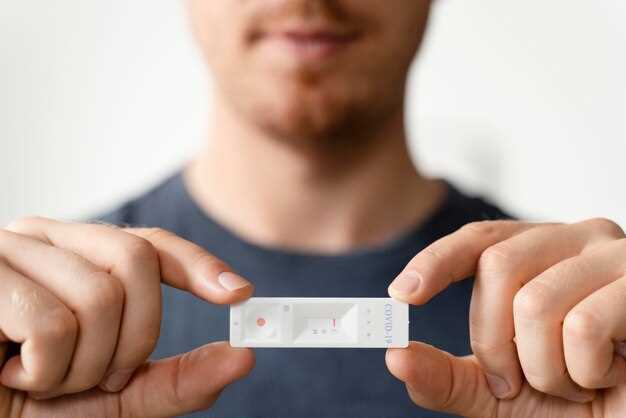
When preparing for an STD test, many individuals wonder if fasting is necessary to ensure accurate results. Fasting is commonly required for certain medical tests, but it’s important to understand whether this applies to STD testing as well.
In most cases, fasting is not required before an STD test. However, there are specific factors that could influence the advice given by your healthcare provider. For example, certain tests may involve blood samples, where fasting might be necessary for more accurate measurements.
Understanding what to expect and how to prepare for your test can help alleviate any confusion and ensure you are fully ready for the procedure. It’s always best to consult with your doctor for personalized instructions based on the tests you will be undergoing.
Understanding the Importance of Fasting
Fasting before certain medical tests is often required to ensure the accuracy of results. When you fast, your body is in a state where it is not processing food, which can impact how substances like glucose and cholesterol are measured in your blood. This helps healthcare providers get clearer and more reliable readings.
However, fasting is not always necessary for all tests, especially for those that screen for sexually transmitted diseases (STDs). Most STD tests are designed to provide accurate results without the need for fasting. Nevertheless, there are exceptions where fasting might be recommended depending on the type of test and the specific conditions of the patient.
Fasting becomes important in tests where food or drink could alter the levels of substances being measured, potentially leading to misleading results. It’s crucial to follow the guidelines provided by your doctor to avoid any interference that could affect the outcome of the test.
How Fasting Affects Test Results
Fasting before certain tests can influence the accuracy of results by preventing food and drink from interfering with the substances being measured in your blood. When you fast, your body is not processing food, which allows for a clearer assessment of your baseline levels of cholesterol, glucose, and other markers.
In the context of STD testing, fasting is generally unnecessary, as many of the common tests, such as those for HIV, chlamydia, or syphilis, do not require food or drink to be withheld beforehand. However, some tests that include a blood sample, such as those measuring viral load or specific antibodies, may benefit from fasting to avoid contamination from recent meals.
Food intake can alter the concentration of certain substances in your bloodstream, potentially skewing results. This is why fasting is important for tests that measure things like triglycerides or glucose levels. In the case of STD testing, it’s important to follow your healthcare provider’s instructions regarding fasting to ensure you are properly prepared and your results are as accurate as possible.
Do STD Tests Require Fasting?
In most cases, STD tests do not require fasting. These tests are designed to detect the presence of sexually transmitted infections through urine, blood, or swab samples. Since these tests primarily focus on identifying bacteria, viruses, or antibodies, food intake does not significantly affect the results.
However, there are a few exceptions where fasting might be recommended:
- If a blood test is used to measure specific markers that could be influenced by food or drink, such as viral load in certain conditions.
- If your doctor orders a comprehensive screening that includes tests unrelated to STDs, such as cholesterol or glucose tests, which may require fasting.
For most STD tests, such as those for HIV, syphilis, or gonorrhea, fasting is unnecessary. It is always best to consult with your healthcare provider to confirm whether any specific instructions, like fasting, are required before your appointment.
When Fasting is Not Necessary

Fasting is generally not required for most common STD tests. These tests, such as those for HIV, syphilis, chlamydia, and gonorrhea, primarily detect the presence of infections through blood, urine, or swab samples. The results of these tests are not influenced by whether or not you have eaten beforehand.
In particular, tests that focus on identifying bacteria or viruses in your body are unaffected by food or drink. Since these pathogens do not interact with the substances in food, there is no need to fast before testing.
For individuals undergoing a routine STD test, there is typically no need to worry about fasting. Simply follow the general instructions provided by your healthcare provider, and you can usually eat and drink as normal before the test.
Preparing for an Accurate STD Test
Proper preparation for an STD test ensures accurate results. While fasting is generally not required for most STD tests, there are other important steps to consider to avoid potential issues during testing.
First, follow any specific instructions provided by your healthcare provider. These may include recommendations about whether you should avoid certain activities, such as sexual intercourse or using certain medications, prior to your test. These actions can help ensure the test results are not affected by factors unrelated to the infection being tested for.
Second, make sure to choose the right time for the test. For instance, if you are being tested for a condition that is most detectable at certain stages, scheduling your test during the appropriate window can improve its accuracy.
Finally, ensure you provide accurate medical history information to your doctor. This includes any symptoms you’ve experienced, past exposure risks, and other relevant details, as they can guide the choice of tests and affect the interpretation of results.
Common Myths About Fasting Before Testing

There are several misconceptions about fasting before an STD test. One common myth is that fasting is required for all STD tests, which is not true. In reality, most STD tests do not require you to fast, as food and drink do not affect the detection of infections like HIV, syphilis, or chlamydia.
Another myth is that fasting improves the accuracy of STD test results. While fasting may be necessary for some blood tests, such as those measuring cholesterol or glucose, it does not have an impact on tests specifically designed to detect sexually transmitted infections.
Some people also believe that fasting before an STD test will prevent discomfort or improve the quality of samples. However, this is not the case. The main concern is ensuring you follow the correct instructions provided by your healthcare provider to get the best possible results.

